Candid wedding photography is like an art in itself, and it has some big challenges.
How do you capture and tell the story of what happens on the most important day for the bride and the groom?
There’s a long list of essential things to capture at a wedding, and you want to be constantly present so you can get the perfect shots for everything. In addition, you also need to move fast to make sure you don’t miss any crucial moments.
It’s tricky, but not impossible as long as you know what to do, and how to do it.
In this comprehensive guide, we will take you through the main principles and tips to take perfect candid wedding photos.
Table of Contents
Guide to Candid Wedding Photography
It’s all about empathy
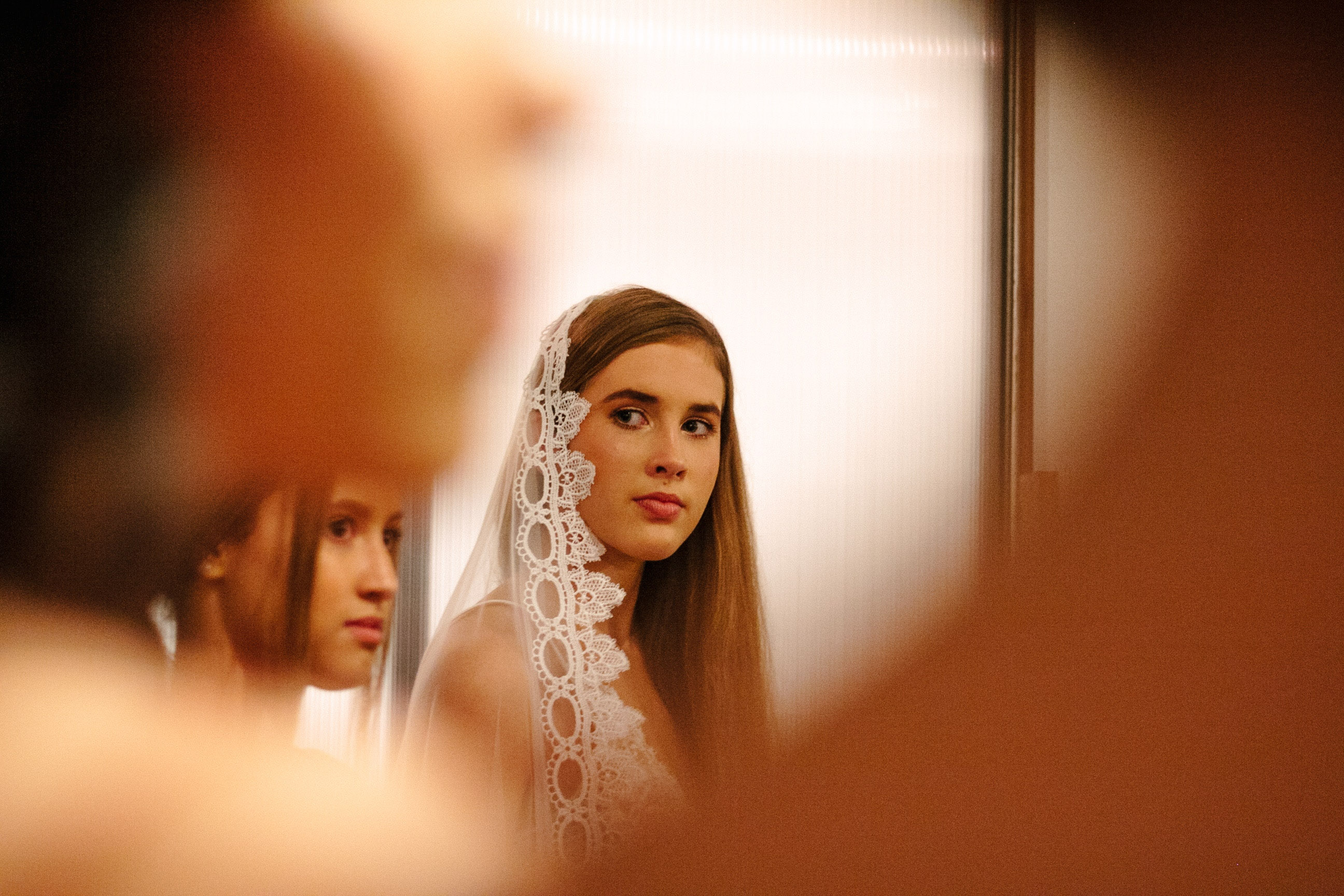 Building a trust-based relationship with the couple is essential to deliver the best results. Try to be their friend and photographer at the same time, so they can feel at ease with you and in front of the camera.
Building a trust-based relationship with the couple is essential to deliver the best results. Try to be their friend and photographer at the same time, so they can feel at ease with you and in front of the camera.
Before their wedding day, they will need to trust you and your own vision. The first time you meet your clients, ask as many questions as you can. This will help you build a reliable and genuine connection with them. Start with asking simple questions that will lead to a relaxed conversation about their wedding details. You can ask their reason for choosing that specific church or venue, or whether they will have a wedding planner (in this case, ask them if it’s possible to get in touch with them; a wedding planner can be a huge help in planning your work for the day). You can also ask them about their family, and their bridesmaids and groomsmen. Be sure to keep in touch with them from time to time, and be genuinely interested to know how they feel.
Do not forget that making a great first impression to everyone is a part of building a trust-based relationship. Be kind, stay positive, smile, and dress professionally. Be polite, and if things change during the day, be flexible.
…and light
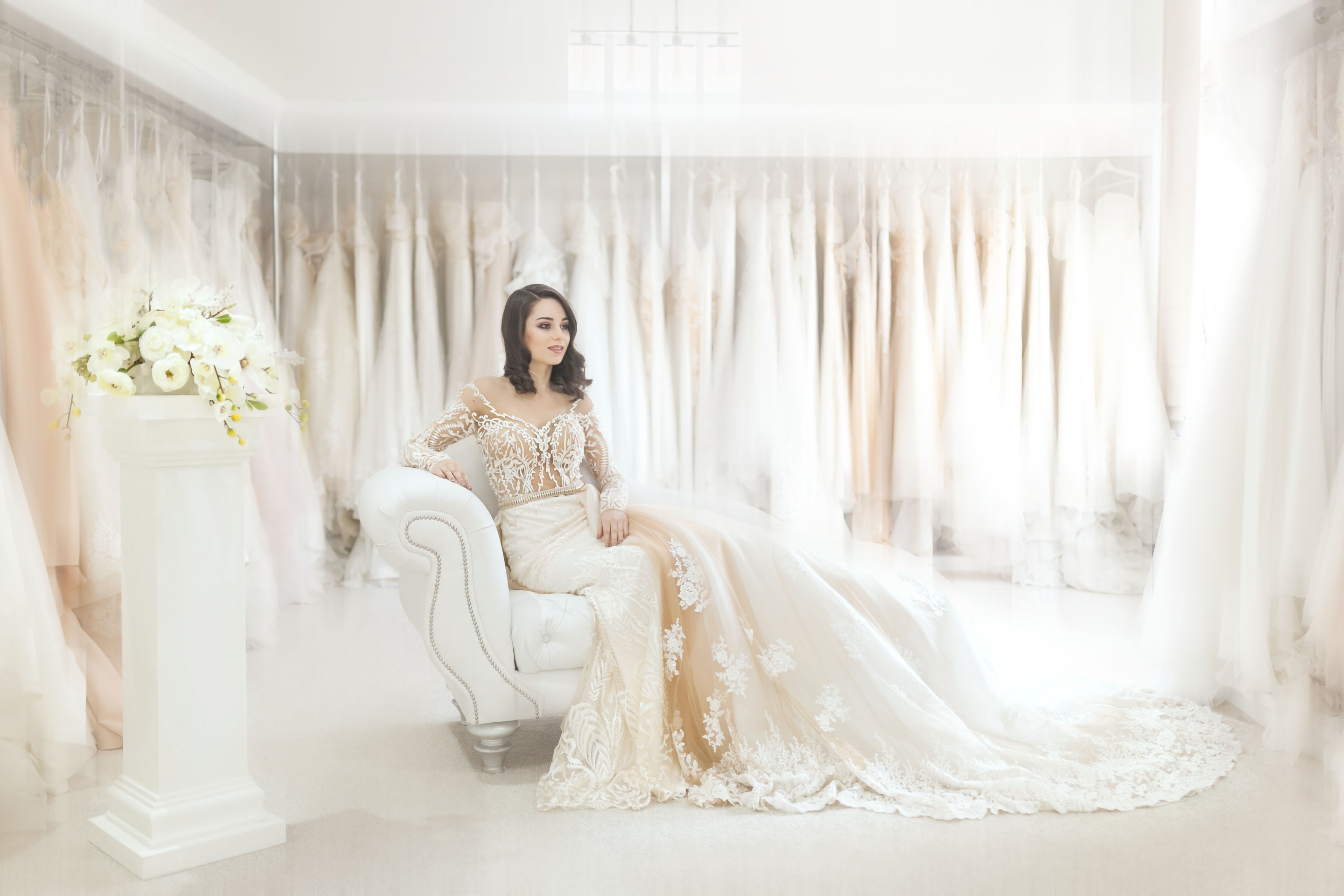 Light is the second key element here. Always look for the best light, and understand where the light comes from and how it plays on the subject. Lighting can be tricky and it can make or break your photo, so make sure you’ve practised and mastered this element.
Light is the second key element here. Always look for the best light, and understand where the light comes from and how it plays on the subject. Lighting can be tricky and it can make or break your photo, so make sure you’ve practised and mastered this element.
For example, a harsh light behind your subject can ruin your photos if you don’t know how to manage it. To tackle this, opt for natural diffusers such as tree branches or try to find the shade if possible.
Pro tip: Finding various light sources (front light, side light, and backlight) can be hard. In this case, hold your hand in front of you to see how the light falls on the subject, and adjust your camera settings accordingly. Use the same trick if you need to quickly understand how the light falls in everyday situations.
READ: 16 Practical Tips to Improve Your Low Light Photography
Before the wedding day
Before the wedding day, make sure you ask them to share the timetable of the day with you. For this, a form to fill in can help you, on which the couple could provide important information, such as:
- The address for where the bride and groom get ready, and the venue(s) for ceremony and reception)
- The wedding program
- The names and contact details of the venue and the wedding planner
- The names and mobile numbers of key people at the wedding.
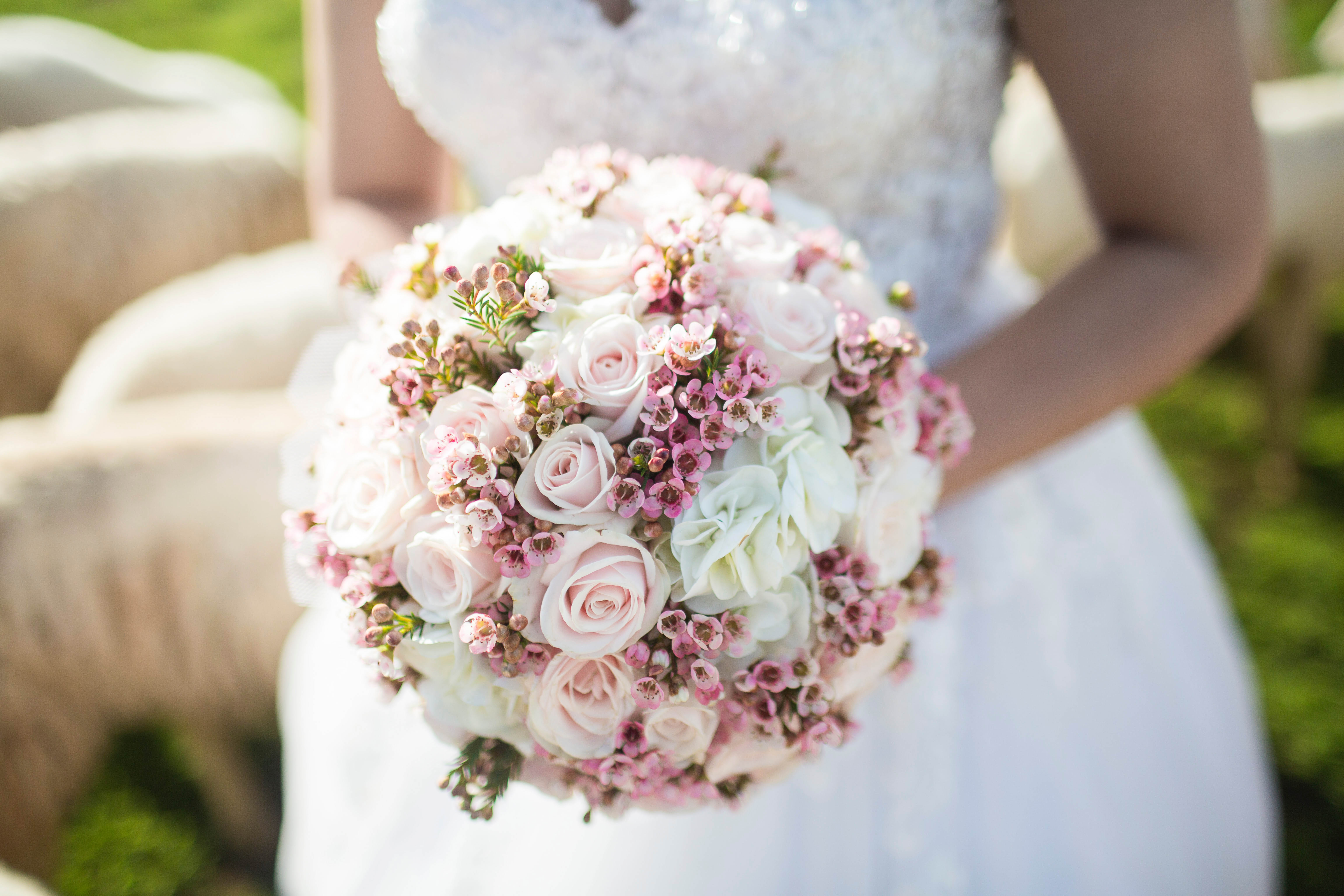
How to prepare for the wedding day
A few days before the wedding, double-check of all your equipment, following these simple steps:
- Check the date and time on the camera, and make sure they’re synchronized if you have more than one
- Make sure all batteries are charged and the gear is properly clean
- Have your backup equipment ready in your camera bag (charged backup batteries and empty backup memory cards are important)
- Put a bottle of water plus a snack into your bag.
- Check the location on Google maps (since most of the weddings usually take place in the countryside, keep a paper map with you as well), and add an extra 1 hour to your traveling time for contingency
- Last but not least, bring the timetable, list of group shots, the wedding form in your bag, and also the form containing the contact details of the key people
Where to start
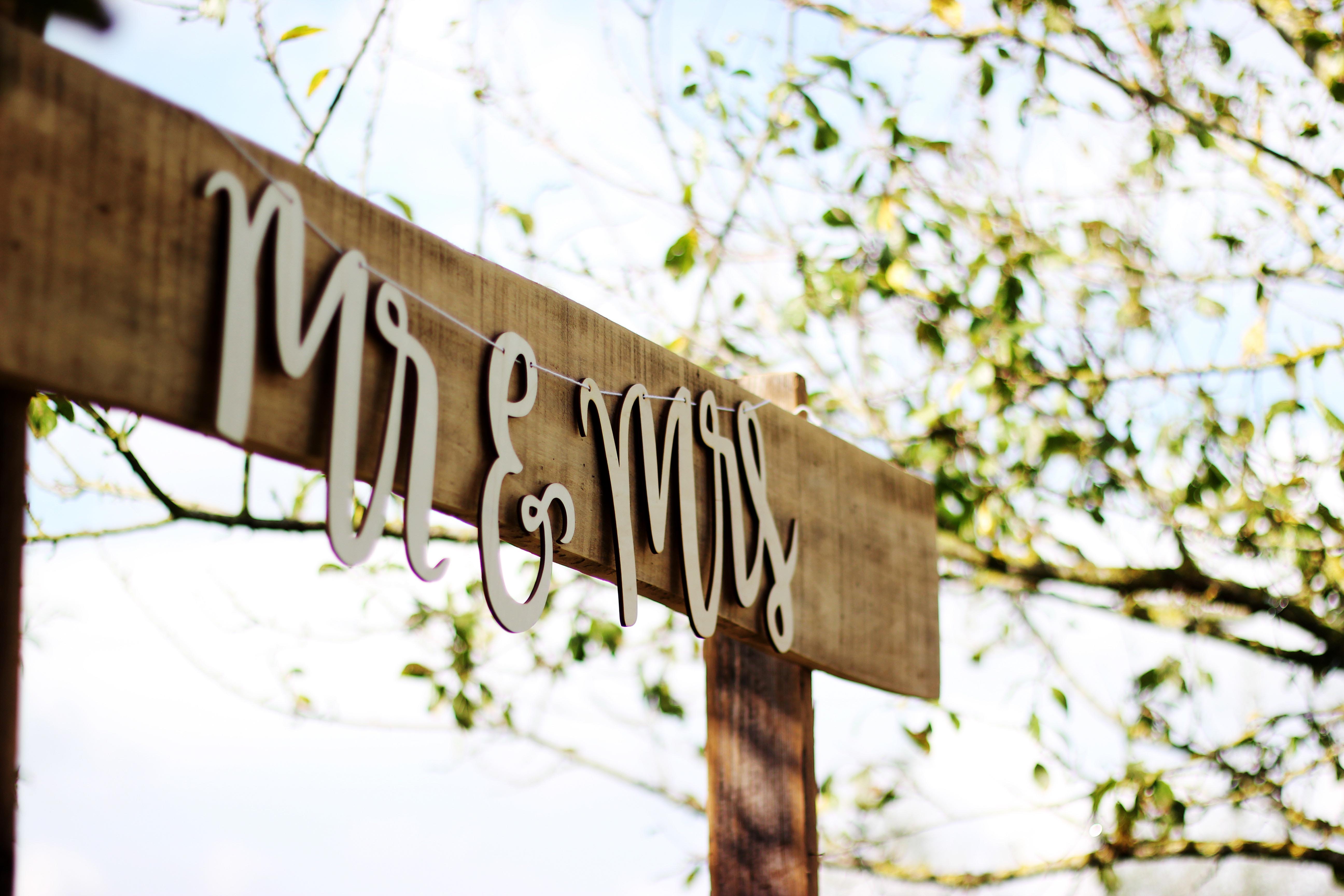
It is important to capture the preparation of the wedding. Take a few photos along the way to reach the place where the bride and groom are getting ready, and on the way to the wedding venue. This will help them remember what that day looked like.
Camera setting tips: For these kinds of shots use a wide-angle lens; 24mm, 28mm, or 35mm would work brilliantly.
Crucial moments not to miss out
Bride and groom getting ready
Without a doubt, the bride’s and groom’s preparation is one of the most important moments of the day. The excitement, anticipation and all the emotions are there to give your photos so much depth. Before picking up your camera, chat with the bride or groom to help put them at ease. Ask questions about how they feel if they slept well and had a pleasant rest during the night. All these questions will help them to relax in front of the camera.
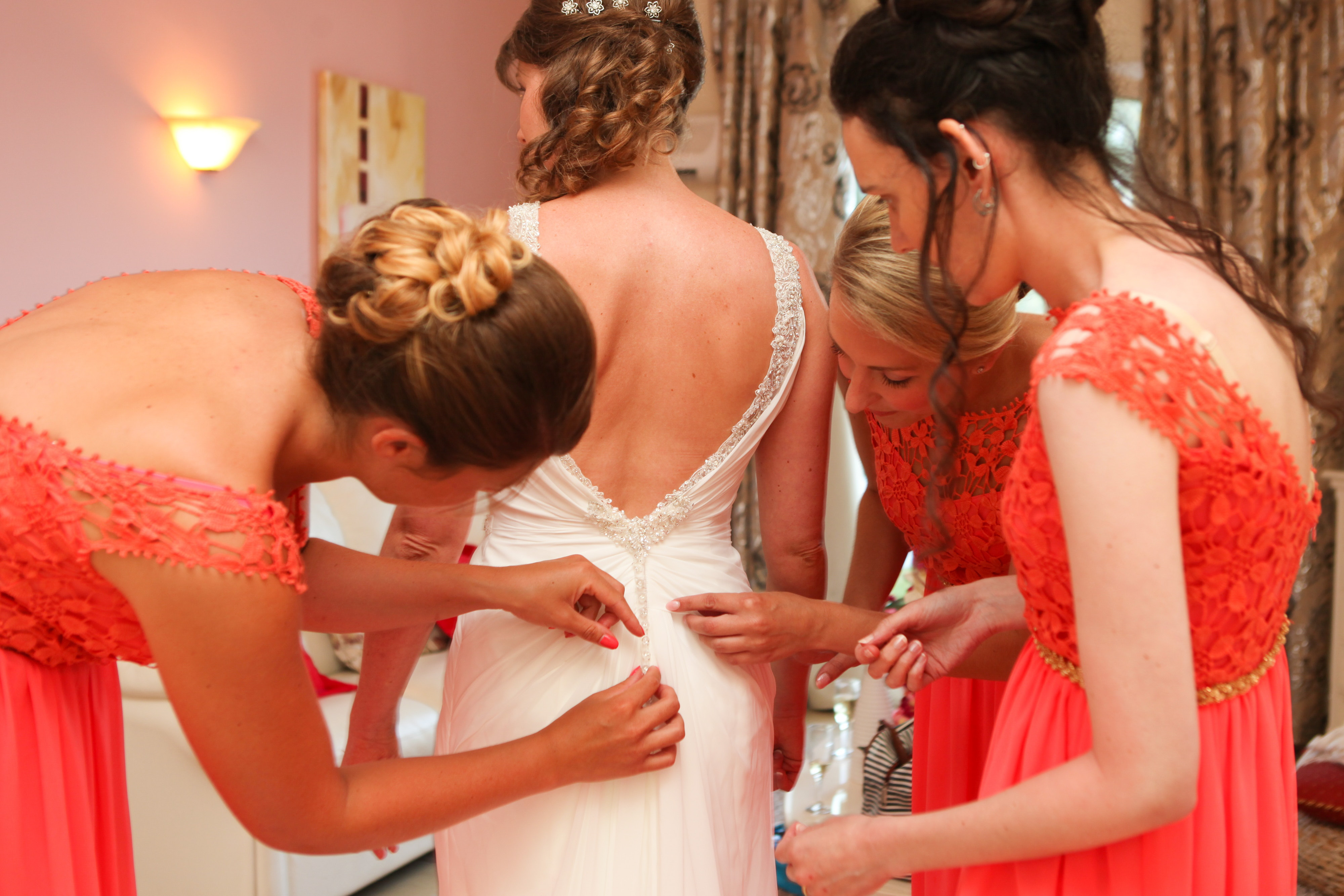
For shooting the getting-ready scene, remember to:
- switch off the lights
- find a natural light source, see how it plays on the subject, and set your camera accordingly
- keep your photo clean and neat – avoid cluttered spots, or if you have to, tidy up the surroundings
Pro tip: switch angles to get the most of the scenes happening in that moment, and to find elements that add depth to your pictures. Stand back to give your photos context, and get close to capturing raw emotions and feelings.
Details always matter
Remind yourself that in candid wedding photography, every small detail that can help you create a story is useful. Details such as photos of the bride and groom when they were children, or toys they loved can tell a meaningful story if you include them in your photos. Look for the best light to capture them and a way to incorporate these details into your story.
Details not to forget
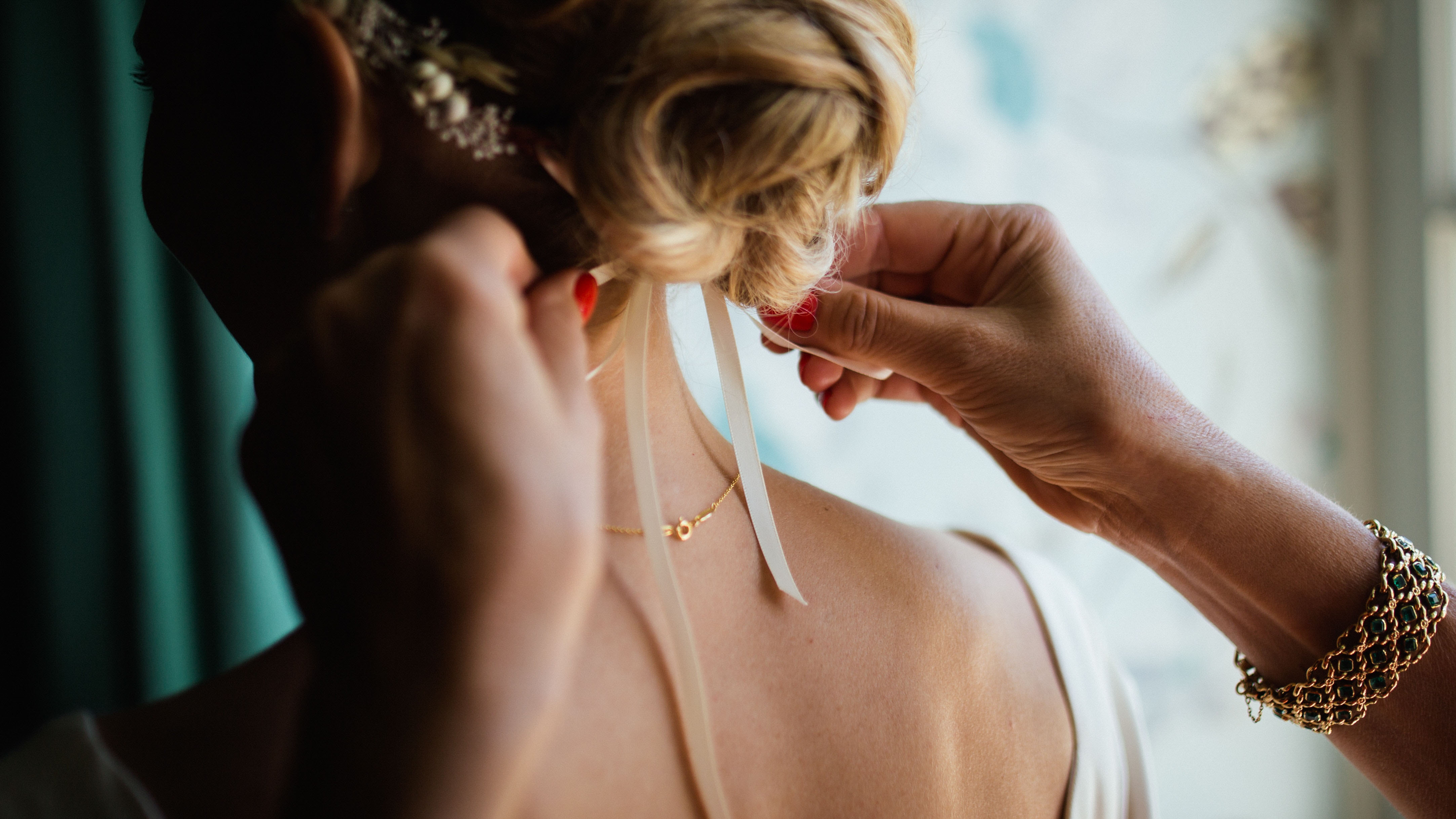
As the bride or groom is getting ready, start with taking pictures of these relevant details once you arrive:
- bride’s bouquet
- groom’s cufflinks
- wedding rings
- wedding dress
- wedding suit
To capture rings, bouquets and cufflinks, find a clean background (pillows, curtains, sofas, etc.) so these details stand out on their own.
Pro tip:
- Use a macro lens to capture the intricate details, such as wedding rings and the groom’s cufflinks.
- For the wedding dress, ask someone to move it close to a light source, and if the dress is white, take the exposure on the dress and then underexpose by 1 or 2 stop(s). A white wedding dress reflects much more light than anything else.
- For the groom’s suit, find the best spot to place it (hanging it on the wardrobe would be great) and capture it in the best way.
It’s time for the ceremony
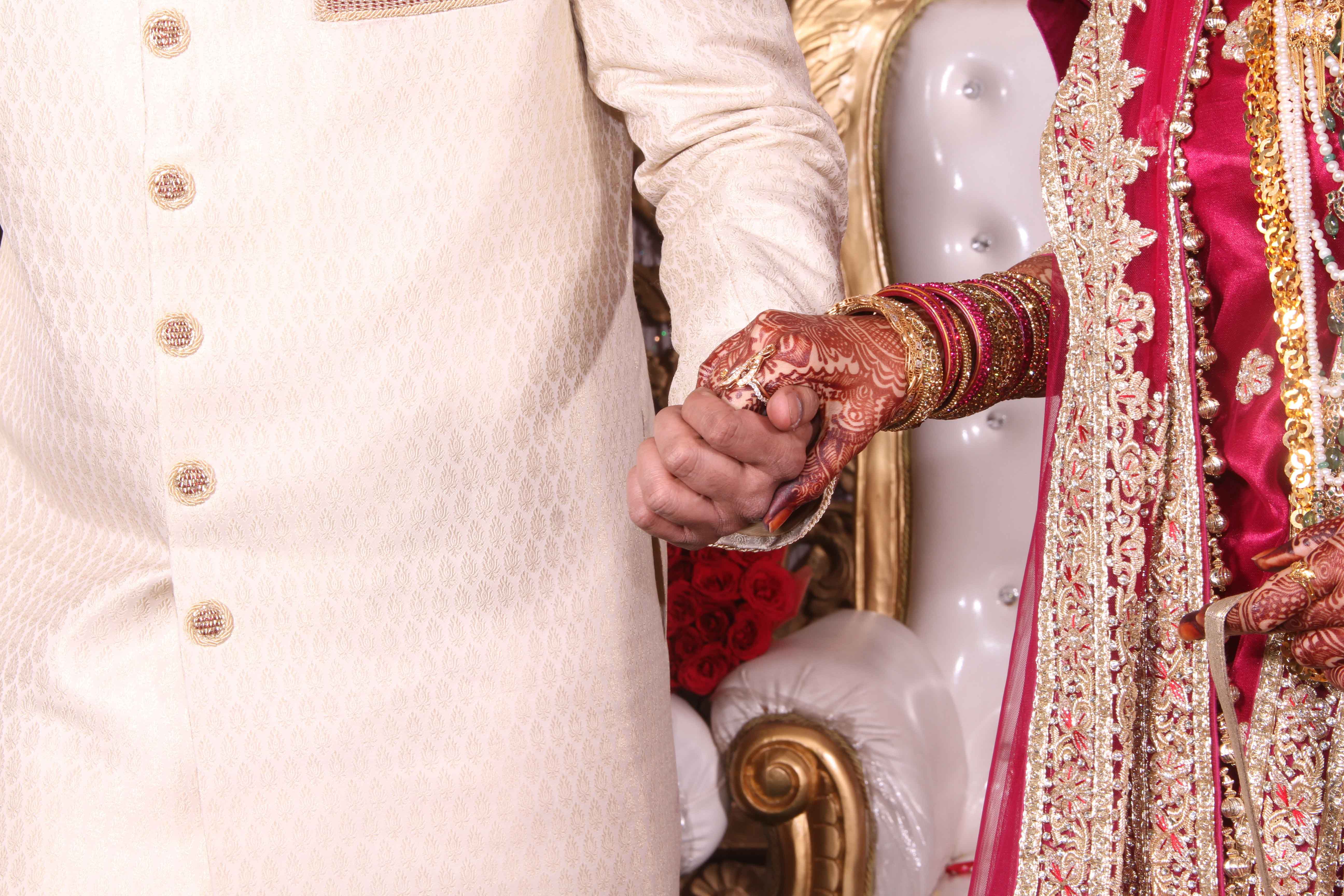 Taking good pictures in some religious venues can be challenging, but not impossible.
Taking good pictures in some religious venues can be challenging, but not impossible.
The first thing to do when you reach the ceremony venue is to take a picture of the whole building. In case it is not well located – let’s assume it stands between an ugly supermarket and a super modern restaurant – try not to include the whole view in the frame. Alternatively, look for details (a unique sign, a flower arch. etc.) that reveals the information about the location.
Try to get there as soon as the groom does, so you will have plenty of time to capture the feelings at that moment, but always be ready for the bride’s arrival.
Best wedding photo albums to preserve for all the wedding ceremonies.
Here comes the bride
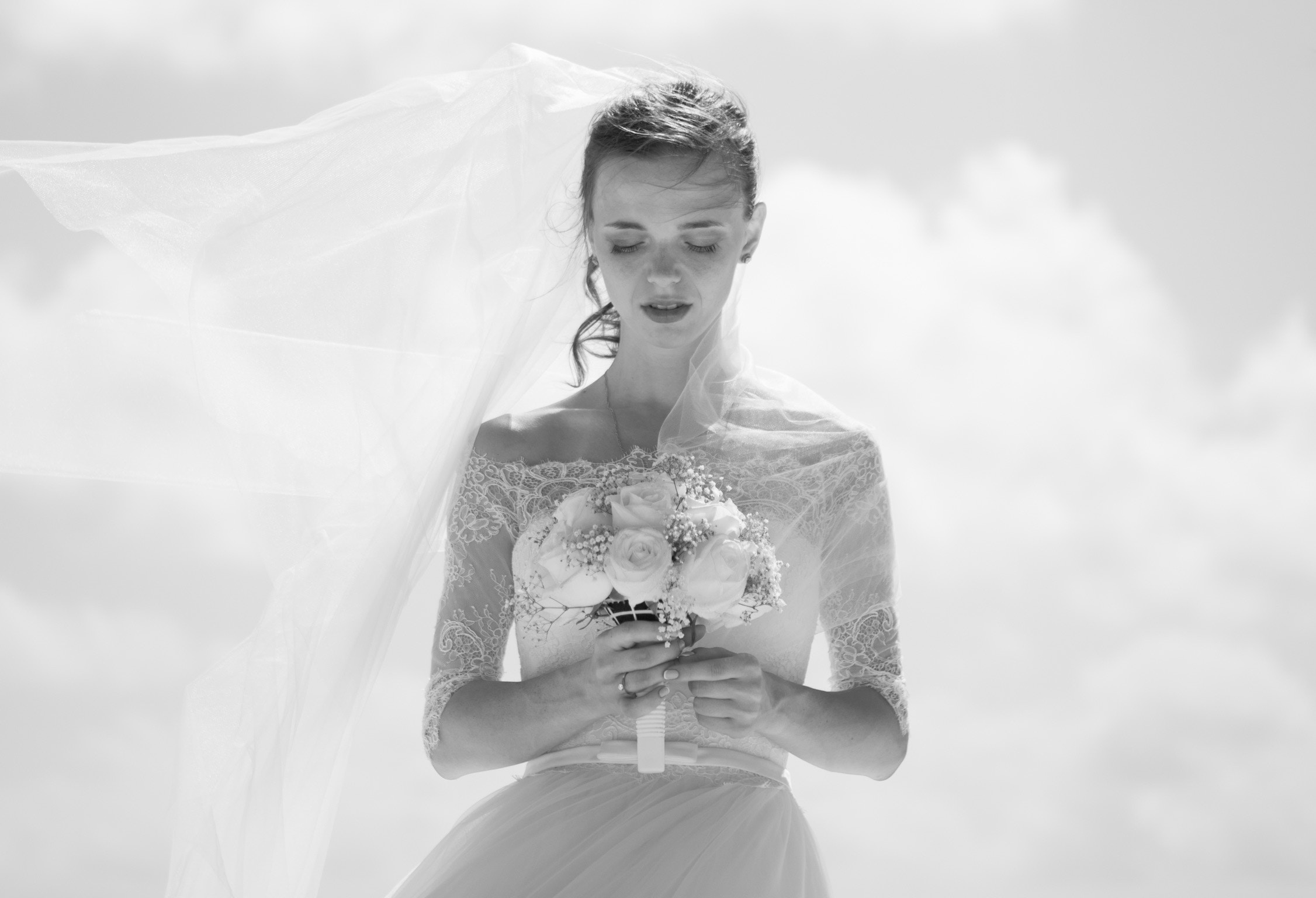 When the bride arrives at the location, watch out for angles where you can take pictures of her and her father without any reflections of you on the car. It will be helpful to lower your angle or shoot through the driver’s window. After that, run ahead to capture the bride walking down the venue with her father.
When the bride arrives at the location, watch out for angles where you can take pictures of her and her father without any reflections of you on the car. It will be helpful to lower your angle or shoot through the driver’s window. After that, run ahead to capture the bride walking down the venue with her father.
The indoor lighting can be tricky, and the light through the door will create a harsh backlight on the subjects. In this case, spot-meter for the subject skin tone and raise your ISO. You will find yourself surrounded by relatives and friends standing in the way, so find a spot where you can have a clear view, and keep them out of your way and your photo.
Shooting the ceremony
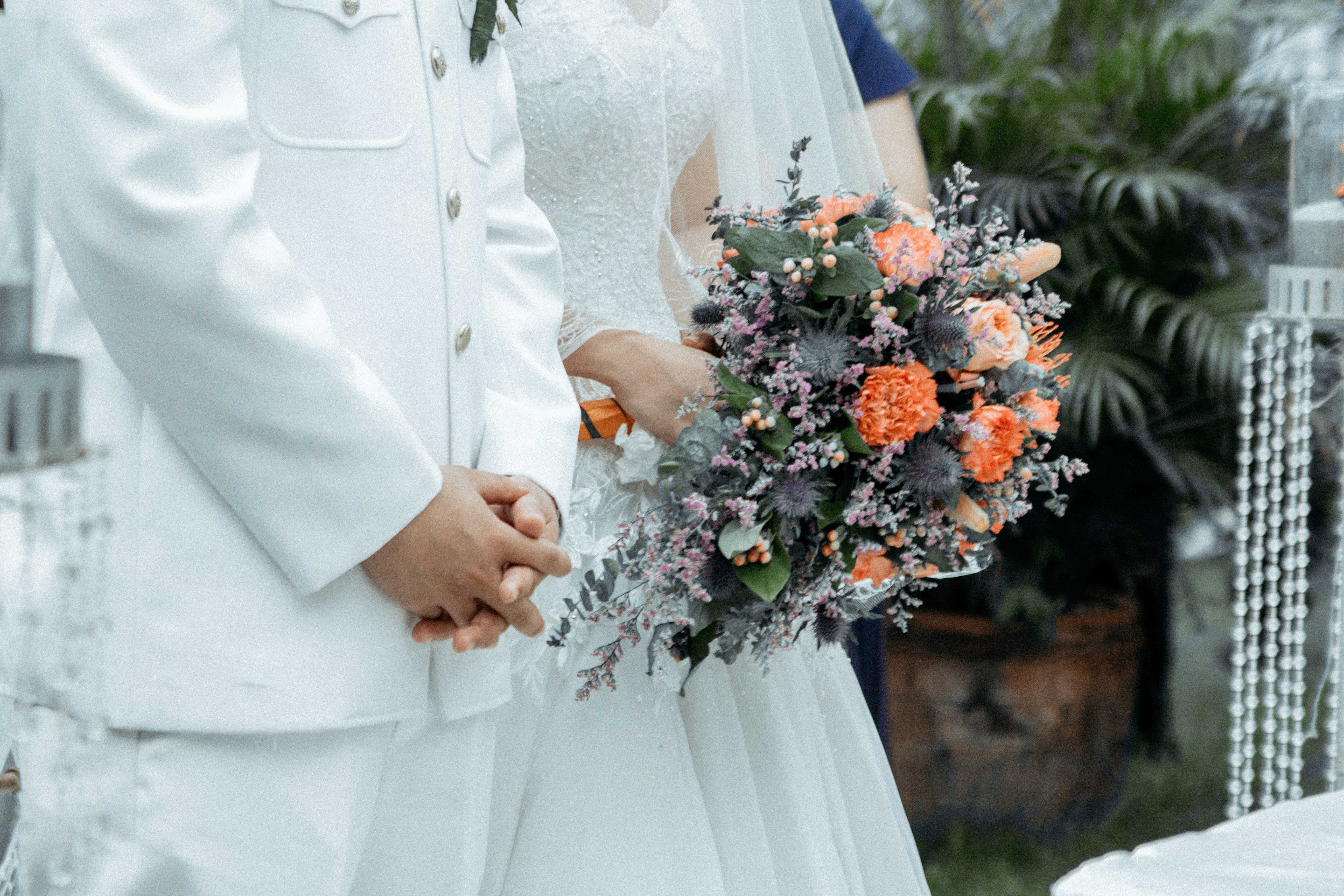 A photographer should be unobtrusive, especially during the ceremony. Take advantage of the time when the music is playing to shoot as much as you can. Try to be inconspicuous when you move around.
A photographer should be unobtrusive, especially during the ceremony. Take advantage of the time when the music is playing to shoot as much as you can. Try to be inconspicuous when you move around.
As using flash is out of the question, your best bet to capture high-quality photos in a low-light venue is by using a full-frame camera and a prime lens, as they are equipped with better light sensors and a wider aperture, respectively. Increasing your ISO, opening up your aperture, and increasing the shutter speed is the best strategy to take pictures in low light venues.
Pro tip: Positioning yourself on the side will allow you to capture the feelings of the couple and the reactions of the attendants.
The exit from the venue
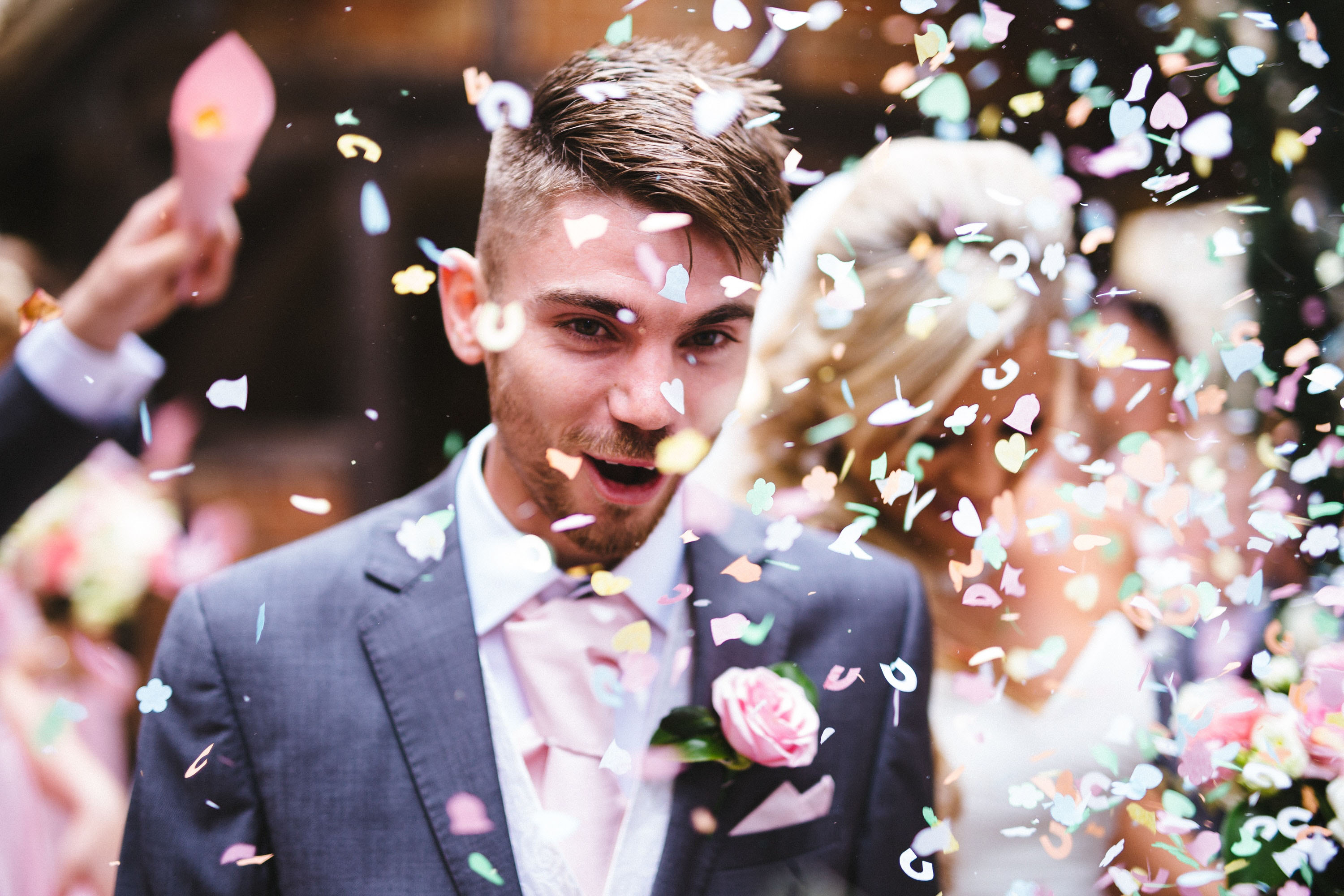
At this stage, you need to run out of the venue to be able to freeze the moment when the newlyweds get out to celebrate with friends and relatives.
Check your ISO, decrease it if it’s too high, calibrate the exposure, and shoot!
Now is the time for the bride and groom to relax, and hug friends and family. The joy and excitement will be palpable, so don’t miss the chance to capture all these emotions!
The group shots
Right after the ceremony is the perfect time for group shots, as everyone still gathers around. Move quickly and take out the list of group shots from your bag to start the session. Start with the parents, immediate family members, and bridal party first, and if you still have plenty of time, try to take as many group shots as you can. If the time is limited, you will get a chance to continue with the list later at the party venue.
It’s party time
This is when the bride and groom can get loose and have fun. During this time, look for mini-stories that build the atmosphere in this part of the day. Always show the context in your pictures, so the bride and groom can remember how much happiness and joy there was on that day. Include details such as the flower arrangements, table settings, and food to set the scene.
Going deeper into details
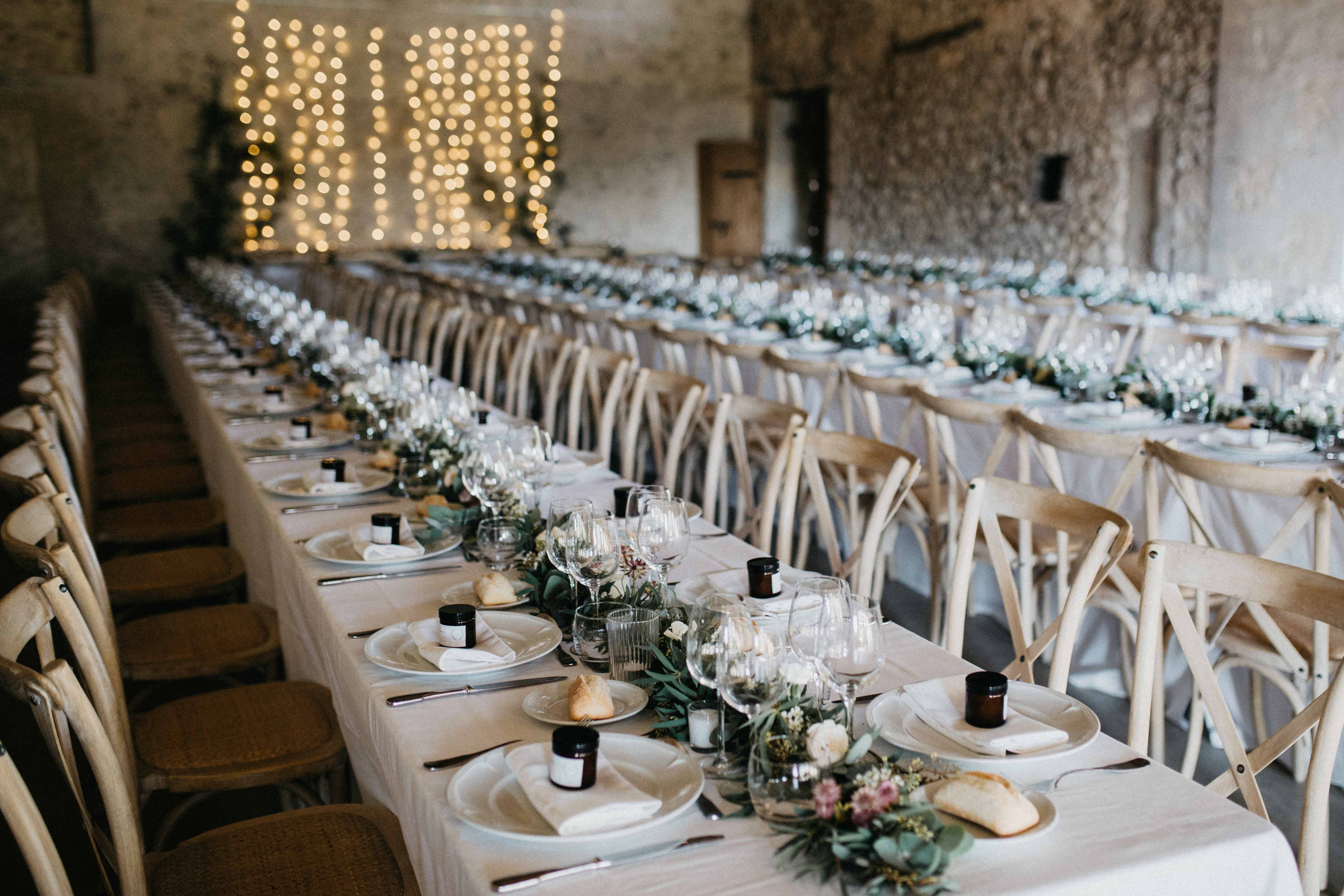 While guests are having their cocktails, take 10-15 minutes to take wide-angle shots of what the reception room looks like before they enter, and do not forget to take few shots of table decorations.
While guests are having their cocktails, take 10-15 minutes to take wide-angle shots of what the reception room looks like before they enter, and do not forget to take few shots of table decorations.
Bride and groom’s entrance
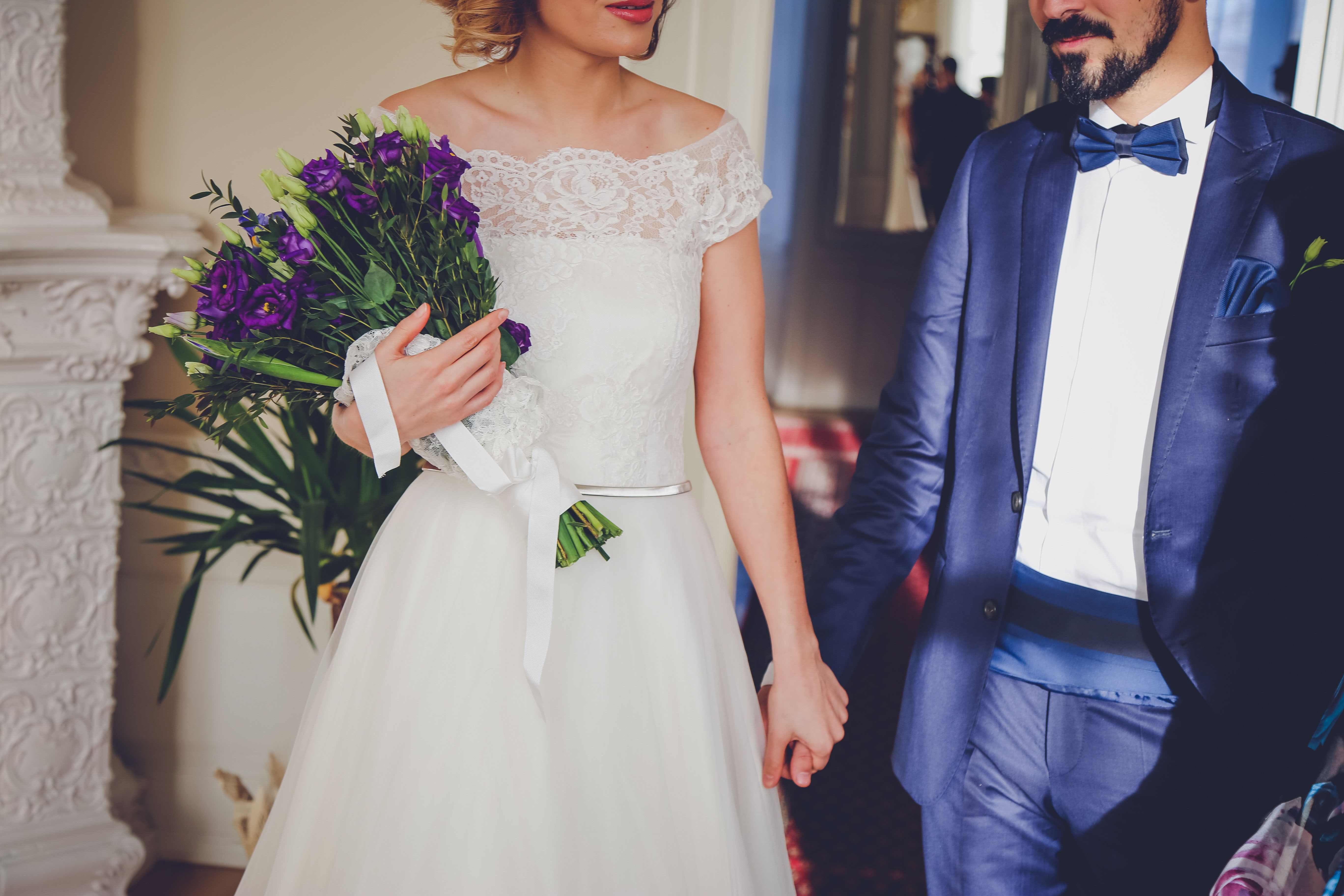
Be ready to capture the bride and groom’s entrance. Move quickly, swap angles, and also take pictures of the guests’ reactions. For this part, using a wide lens like the 35mm will allow you to capture the energy in the room and let the viewer feel like if they were there on the scene.
Wedding lunch reception
Keep the moments between food courses to get closer to the tables and capture the interactions between people. Follow the movement of the bride and groom as they move through the tables to greet the guests, as this is another great chance to take pictures of spontaneous reactions and have candid portraits.
The cake cutting and the first dance
Cake cutting and first dance are parts of traditional wedding photography.
For the cake cutting, it may be useful to move all the guests to the side while the bride and groom cut their wedding cake. As always, include the whole scene in your photo and then get closer to take portraits and detail shots.
Listen to the mood of the song and reflect it into your pictures. Fast-paced music? Slow song? Find a way to communicate it with your pictures!
Pro tip: Be prepared to use your off-camera flash to capture the first dance, in case the ambient light is low. Set it on E-TTL mode so that the flash knows how much power needs it takes to fill in the room with light. Setting it to +⅔ or +1 is a good place to start so that the image doesn’t come out over-exposed. Bounce the flash off of walls and ceilings, and the rest is easy.
Tell the story
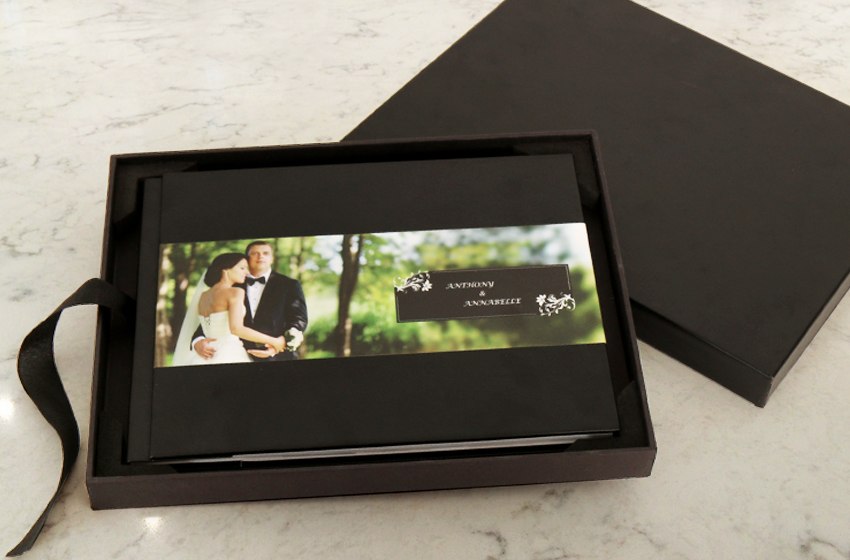
The wedding is a wrap, and now it’s your time to tell the story.
You’ve got stunning images of the wedding, and you can make it even better by creating a compelling story with the photos. Treat your clients with beautiful, premium wedding albums that they will cherish forever.
Our Pro Plan service, designed to help photographers provide the best service for their clients, offers premium products that your clients will get to enjoy, along with the ease of sharing their wedding photos online with their loved ones. It’s simple and easy for the photographer, and delightful for the clients. Win-win!
Get exclusive discounts on all our premium products on signing up, and please feel free to reach out to us for more details.
Happy clients, successful business!
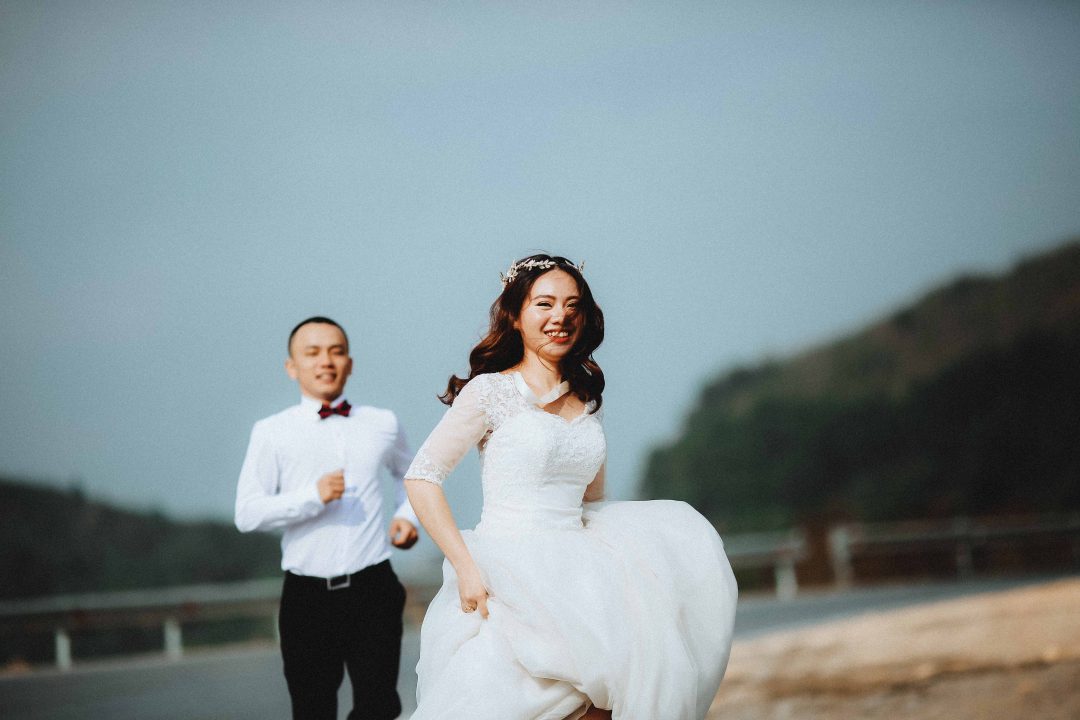

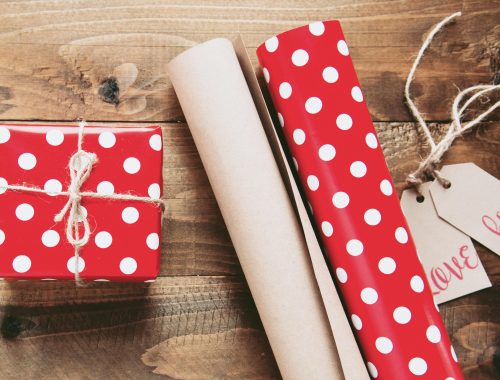
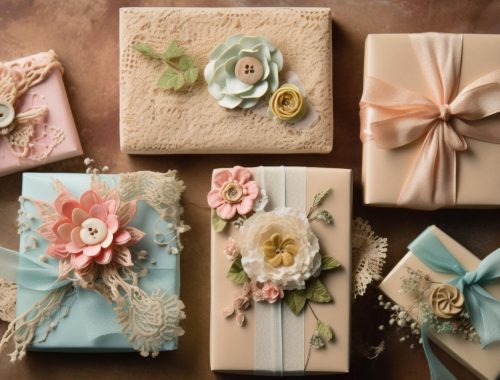


Be the first one to comment